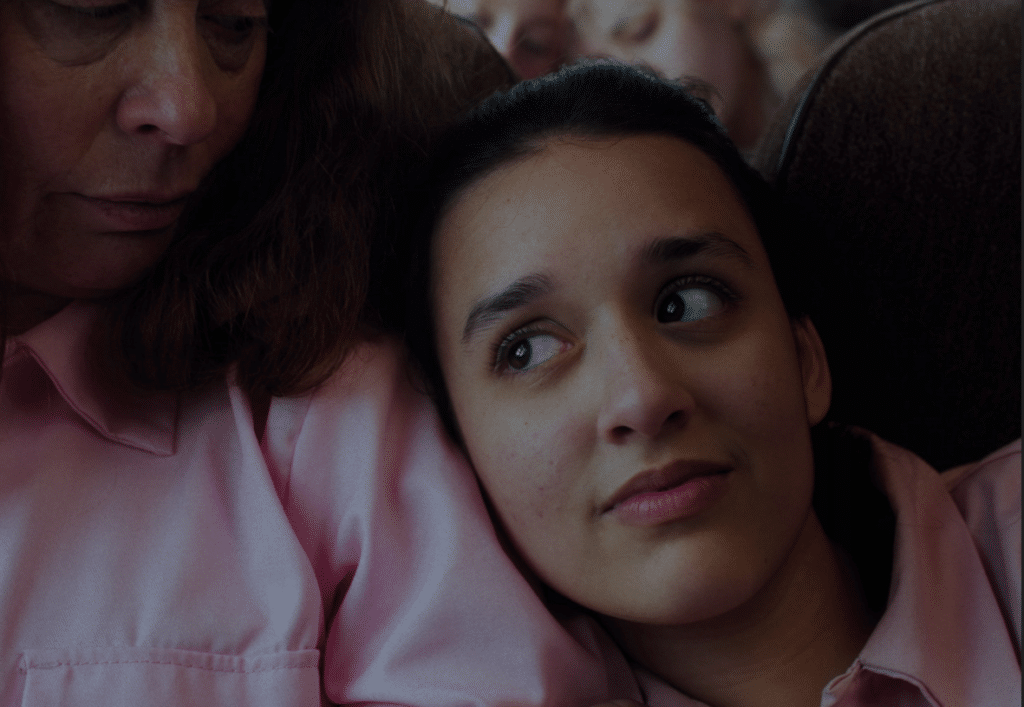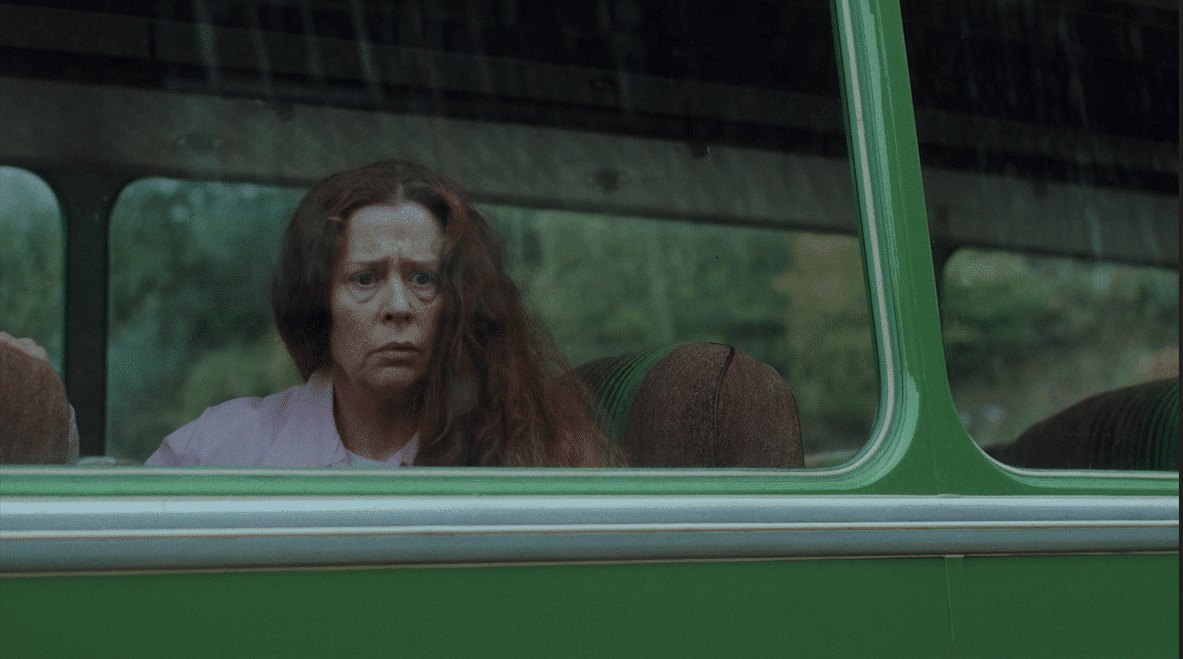
Somewhere, in a very dour-looking Yorkshire, a group of young people are being taken on a bus trip to a place called ‘Wonderland’ (which, again, looks pretty dour – but that’s not beyond the realms of the imagination in Britain). They seem happy enough; however, there’s something not quite right about this whole set-up. They’re all wearing identical jumpsuits, QR-coded, and their mood darkens considerably once they actually get inside. What is this? A prison? Some sort of ‘reward’ which turns out to be something completely unexpected? Well, almost…but not quite. This excursion is also unusual for the fact that one of the people on this trip seems to be a lot older than the others, and yet she’s referred to as ‘Kiddo’. Has she been coming on trips like these since she was a teenager herself? What’s her story?
Answers to these sorts of questions are not clearly forthcoming in Kiddo (2022). This is not a failing of the film, however, but rather a testament to the ways in which writers Brett Chapman and Scott Milligan have left interesting spaces within a highly symbolic and surprisingly complex mini-universe.
Kiddo (Lisa Howard) seems to know the bus driver; in fact, it looks as though he’s not a driver as such, but a Jack-of-all-trades whose main job is as a farmer – okay, as some kind of agriculturalist, but he certainly looks the part, and as we see a celebratory dinner welcoming his young son Jasper (Paddy Stafford) as a full partner in the family business, it seems all the more like a long-standing relationship with the environment as a resource. Now, whether or not you guess the twist in this set-up is by the by; there are so many deft touches here which demand attention. Why does this family of farmers have such an overweening, but dismissive attitude to Kiddo? Why is she kept around in the way she is? What is so special about her?
There’s a slightly dystopian vibe here, or more accurately a speculative fiction vibe perhaps, but the way in which Kiddo works is that everything seems so normal – with one or two thought-provoking exceptions, so the contrasts work very well, one thing against the other. Kiddo herself is both humanised and dehumanised during the course of the narrative, and as dialogue is relatively minimal, we mainly glean her thoughts and feelings through her facial expressions. Dawning realisation is a key feature of the film, and it comes together against an aesthetically appealing, if perplexing, curious backdrop: the baby pink jumpsuits against the stark landscape, the homely farmhouse dotted with visual clues of a shared, and a sinister history.
It’s difficult to discuss the film’s overarching impact and success without discussing it in terms which give the game away, so let’s just say this: if Kiddo aims to question how we engage with our environment, and the hypocrisy in how we behave towards those in our care, then it does so incredibly successfully. It’s only really when the credits roll that you can really piece things together, and appreciate that this is a surprisingly rich, emotive narrative for its fifteen-minute run time. There’s plenty to think about after the credits, too. Kiddo is a worthwhile short film which makes light work of a particularly punishing perspective.
Kiddo will be available to watch on Alter from 29th December 2022. For more information on Alter, please click here.
